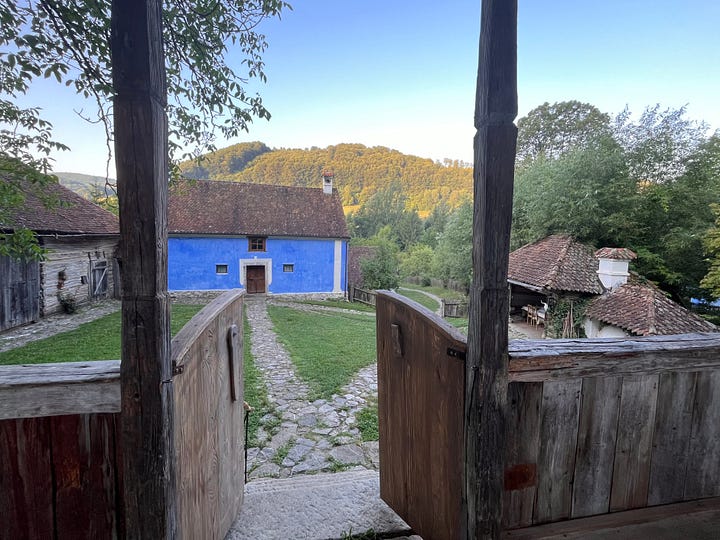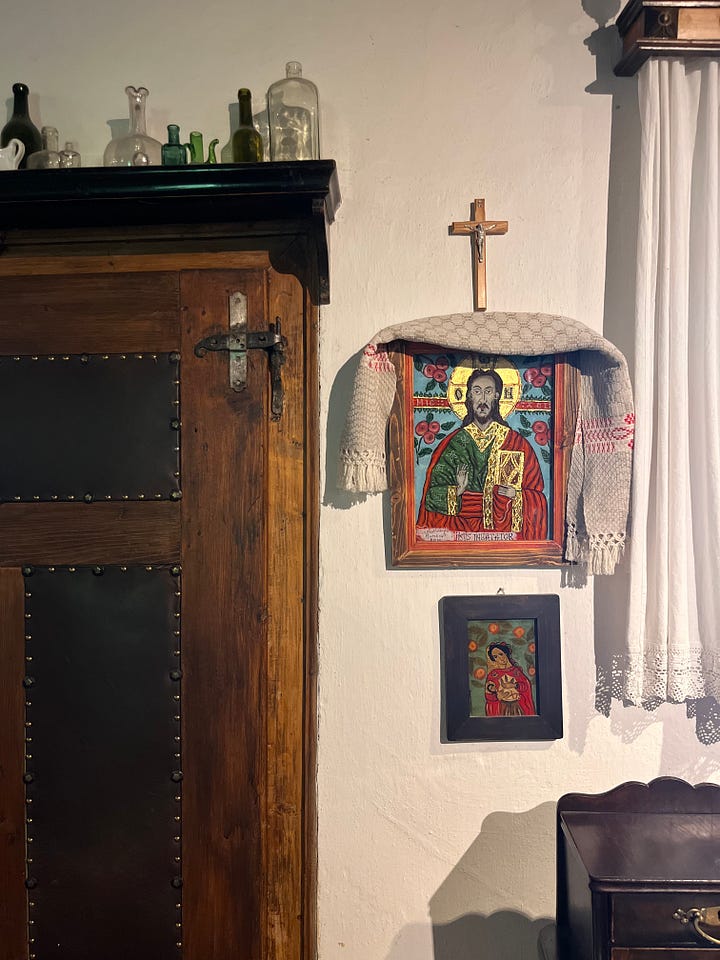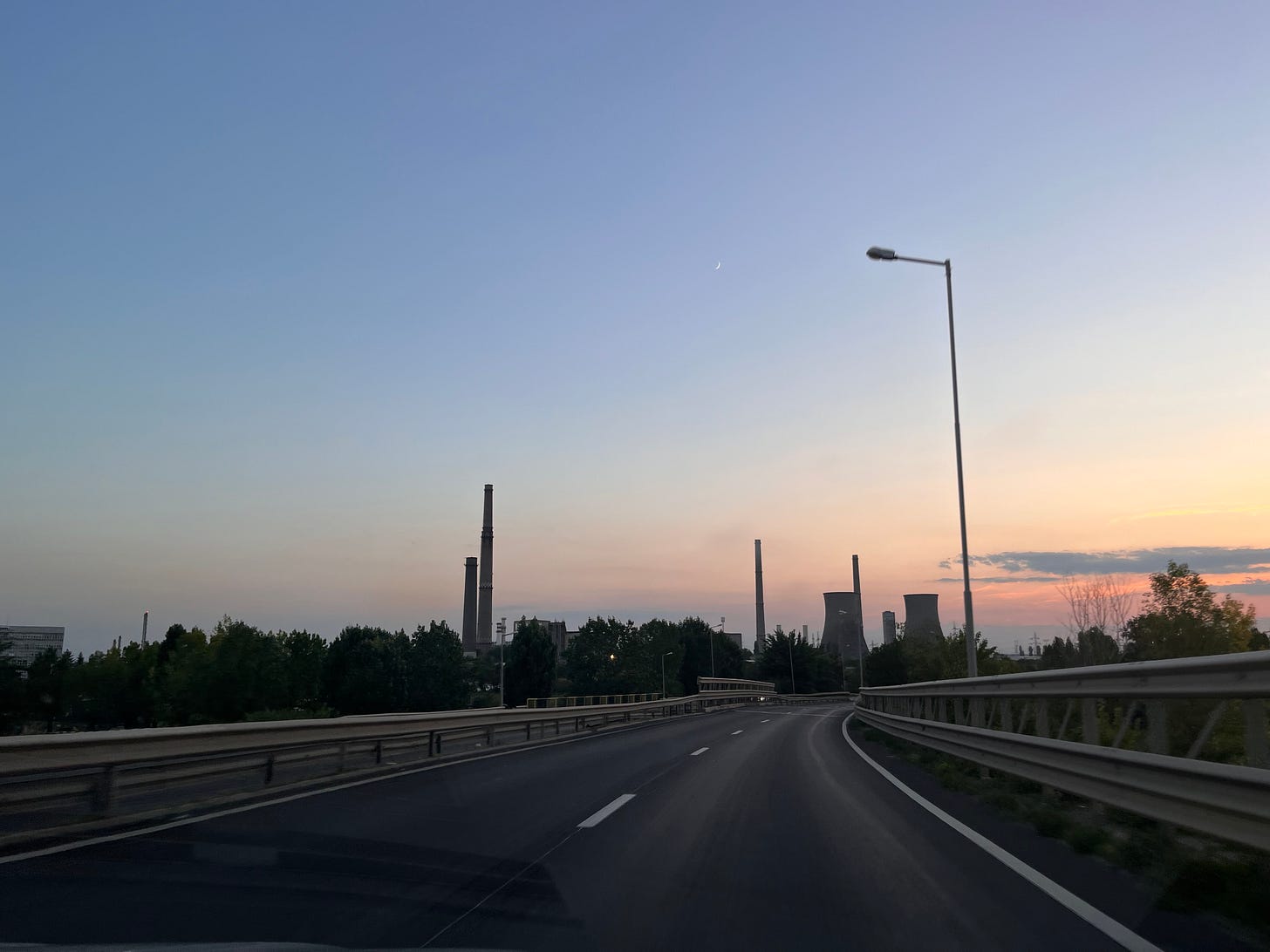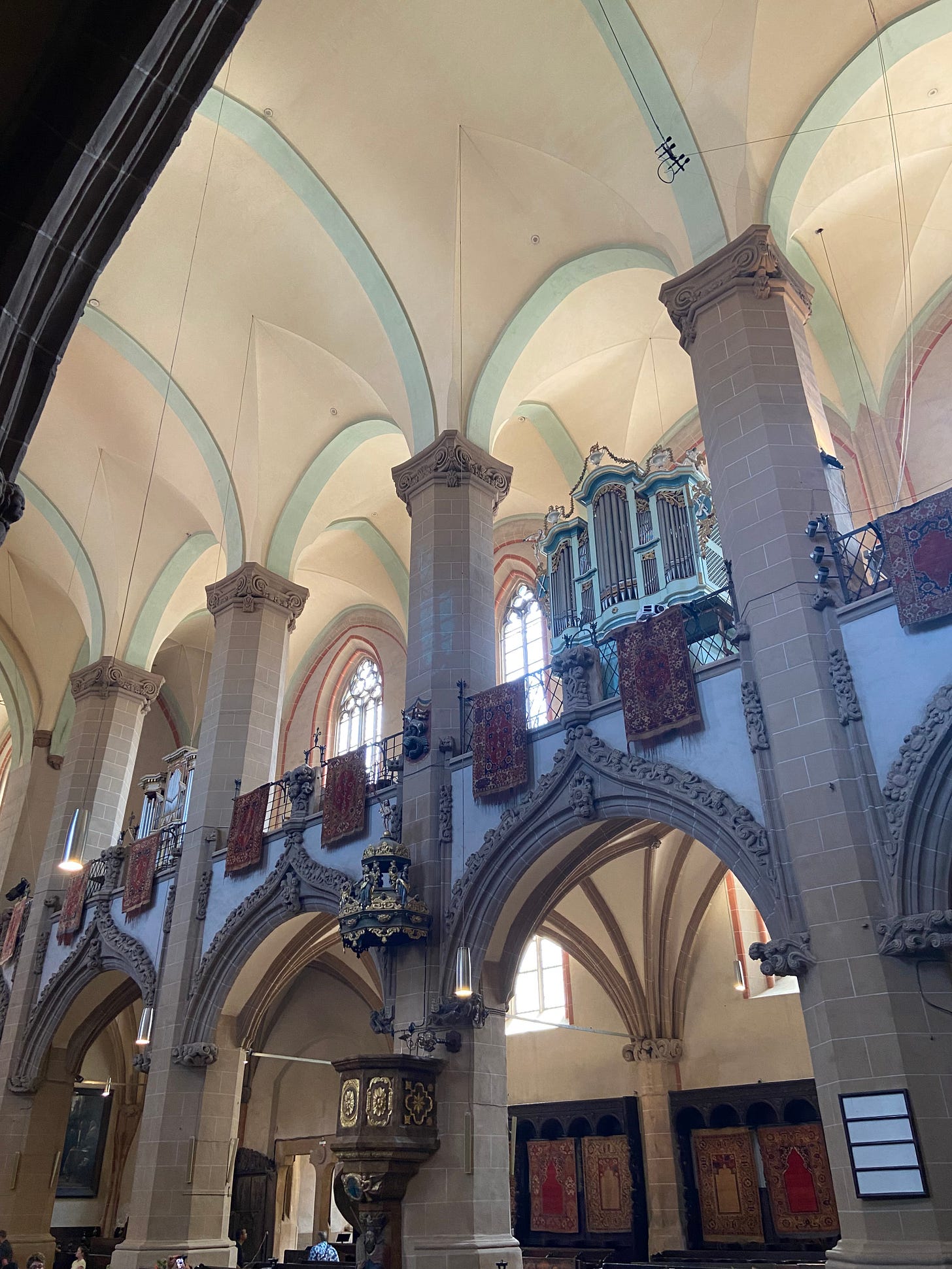Against Against Travel
Travel Diary IV: Thinking about Virginia Woolf, Agnes Callard and Soviet Montage in Romania
I did not want to go. Ever since that disastrous trip to Madrid last May I had been against travel. Travel these days seemed vulgar. I was thinking about that Noël Coward song ‘Why do the wrong people travel / and the right people stay at home?’ I scanned the breakfast room at the five star American hotel in Bucharest and I couldn’t find a single handsome face, they were all deformed in one way or another, frequent travellers whose brains and bodies had been irreparably damaged by overexposure to x-ray machines at airport security. Why did I go all this way to be around these ugly and unfriendly people? I was finding myself in agreement with Agnes Callard, who made a case against travel last year. Travel is mostly locomotion, she argued – yes. Travel changes the place one travels to more than it changes the traveler – absolutely. Travel makes us deferential to dubious authorities – exactly. The contemporary traveler is less heroic explorer and more like a sheep, moving in a flock, eating away at the landscape, herded by a barking dog, and allowed to stay only to be fleeced. Upon reflection, we seem to gain little by travel, and to lose a great deal, like our ability to think. ‘The mind's contents’ wrote Virginia Woolf of her trip down to Andalucia, ‘break into short sentences. It is hot; the old man; the frying-pan; it is hot; the image of the Virgin; the bottle of wine; it is time for lunch; it is only half-past twelve; it is hot.’
But I couldn’t get out: I was going to Romania, my desires, my philosophy be damned. And as the departure day approached I began, like a Pavlovian dog, to salivate a little as I checked us in, packed our bags, hailed a cab. Like the woman in Oliver Bennett’s play, What We May Also Do, who repeatedly reapplies for citizenship in her own country, I was taking pleasure in going through a bureaucratic process, with its little tasks and rewards, quite independently of the outcome. Had Agnes Callard considered the pleasure of those people who, during the pandemic, paid to go on a flight that took them back, like a cruise with no intermediate stops, to the airport they had departed from, life without security pat-downs, seatmaps or boarding groups apparently not being worth living? For these people, I thought, the word ‘Kafkaesque’ must describe something comforting rather than disconcerting. Perhaps we should imagine Joseph K happy.
But my procedural happiness was short lived. Reality intervened. Our flight wasn’t on the departure board – wrong terminal. Instead of breakfast at Fortnum and Mason we had to make do with Wagamama. Heathrow Terminal Three, like most London airports, is not so much an architecturally coherent building as a shopping centre surrounded by a permanent construction site, its windowless airside with its low ceilings and garish shopfronts nudging you to shop by making anything else as unpleasant as possible. The carrot of an Instagramable moment seems preferable to the stick of this hostile environment. And of course, we were delayed. And the three-hour flight had half-a-dozen poorly behaved children who all puked during the choppy approach to Henri Coandă International Airport. The flight attendants paused while welcoming us to Bucharest, as if having to look up where we were. I admired the busy smoking room by baggage reclaim for an hour as we waited for our bags to arrive. A Romanian-looking American rudely exclaimed ‘this is a third-world country!’ as we were queuing at the Avis car hire desk. We picked up our car and waited fifty minutes for a Greek wrap with coleslaw at McDonald’s. But then we hit the road. The process had ended. We were in control. And I breathed a sigh of relief as I adjusted the passenger seat and popped another codeine tablet for my migraine. Perhaps we should imagine Joseph K medicated.
It’s the greatest and laziest cliché of travel writing to describe a country, especially a less developed one, as a ‘land of contrasts’. I would never stoop so low. When we had to slow down for some domestic fowl pottering about a countryside road five minutes from the airport, I didn’t think of ‘contrasts’, I thought of Soviet montage, the juxtaposition of images in dialectical tension. Perhaps the techniques of Eisenstein were in fact born less of a theoretical immersion in Marx or Hegel, and more from the daily experience of Soviet life, of a modernity appearing in patches like Athena, like Bucharest airport, fully formed, against a backdrop of peasant life, of country roads, two historical configurations co-existing at the same time, without any gradations. It was hot; I was high; yet I managed to think in long complex sentences. Take that, Virginia!
But I know what you’re thinking: perhaps the heat, the locomotion, the x-ray scans had taken their toll, since Romania hadn’t been part of the USSR, hadn’t been properly speaking ‘Soviet’. It isn’t part of the USA, I retort, but the influence of the American Empire can be seen everywhere: in the Patriot Missile Systems dotted around the airport, the NATO flags in front of Parliament, the billboards along the road. In fact, traveling through Romania felt like traveling through the remnants of foreign empires. We drove past an abandoned Communist-era industrial plant on our way to the city of Brașov, known until the middle of the nineteenth century as Kronstadt, a Saxon outpost on a German trade route with the Ottomans, its Gothic cathedral decorated with oriental rugs. When a few days later we reached rural Transylvania, we found everyone speaking Hungarian, a living monument to Austria-Hungary. And then there are the Romanians themselves, their name and language paying homage to the Empire which had conquered their ancestors two thousand years ago.
It was hot; it was time for lunch. The Hungarian peasant woman served us some broth with chunks of beef and vegetables, stewed cabbage with mince and fried potatoes, doughnuts for pudding. Locomotion had temporarily ceased. Thinking intensified. Isn’t Romania an example of what Deleuze called ‘deterritorialisation’? I was lying in King Charles’ bed: Two crucifixes on the wall. An icon. A picture of his mum, Elizabeth. A tiled stove. ‘New English Country Style’ on the bookshelf. All I could hear was the pendulum clock ticking. We had retreated from the modern world to a peasant house owned by the King of England, or so it seemed. The quaint, calming ticking of the clock took on a different character when I read that ‘the greater accuracy of the pendulum clock allowed for the faster pace of life which was necessary for the Industrial Revolution’. Like the pendulum clock, the village of Zalánpatak where we were staying, was a seventeenth century invention, built originally to house the workers employed in a glassworks founded by one of King Charles’ Transylvanian ancestors. What was now advertised as a pristine rural idyll had in fact been an industrial settlement until the middle of the nineteenth century when the valley had become so severely deforested that the glass furnaces had to be shut due to a lack of fuel. What began as a village of craftsmen became a village of peasants: quality of life plummeted, people emigrated. Those who stayed became subsistence farmers or day-labourers in neighbouring villages. Their diets became reduced to potatoes and salted cabbage with cornmeal mush. People became so demoralised that when the Virgin Mary appeared in the house of a local named Józef Tischler, drawing a crowd of women and children, she was chased away by a hungry blacksmith angry that his wife had made him wait for dinner. Only with the arrival of the British Heir in 2009 and the prospect of developing a tourist economy did the fortunes of the village begin to turn. Agnes Callard is right to say that travellers alter the places they travel to, but I couldn’t help but think that in the case of Zalánpatak this change is a welcome one. The inner Marxist in me wanted to say: beware of naturalising, of hypostasising social relations! Being a peasant and eating cornmeal mush is no more natural than cosplaying as a peasant for British tourists.


It was hot; it was half-past twelve; and I was thinking, I was learning, I had fun. I was beginning to question the authority of Agnes Callard. She is American, I thought, and she is an academic, both red flags as far as travel is concerned. The two travel experiences she mentions in her piece are holding a falcon in Qatar and repeatedly walking from one end of Paris to the other in the shape of an asterisk. She also thought travelling to a Taylor Swift concert beyond reproach. She doesn’t seem to care about Soviet Montage or the political economy of remote Transylvanian villages. And while she’s right that travel will do nothing to a dull person except fill their phone with images, it can be supremely stimulating to a curious and imaginative mind. I was against travel, and now I’m not.
Announcement: I’ll be doing a reading on 31 July at Beasy bar in Soho – come and say hi!






Another banger Mr luxarbo